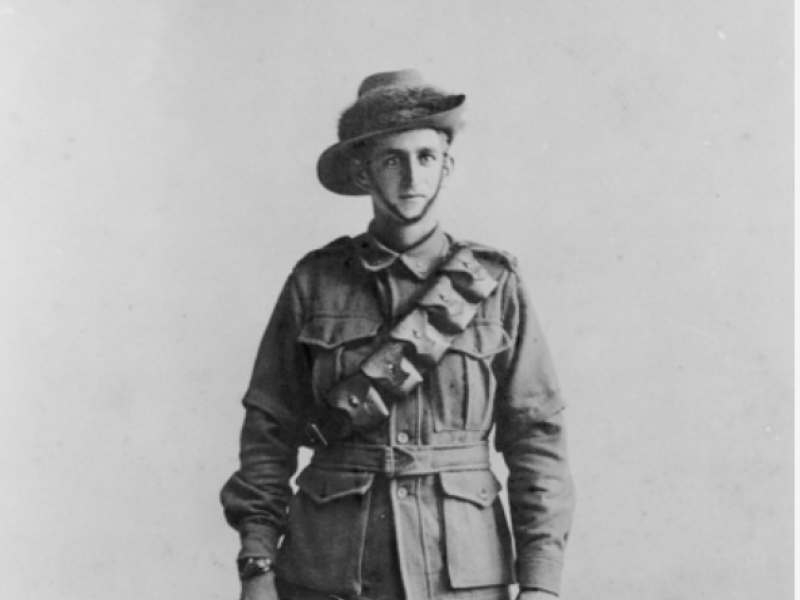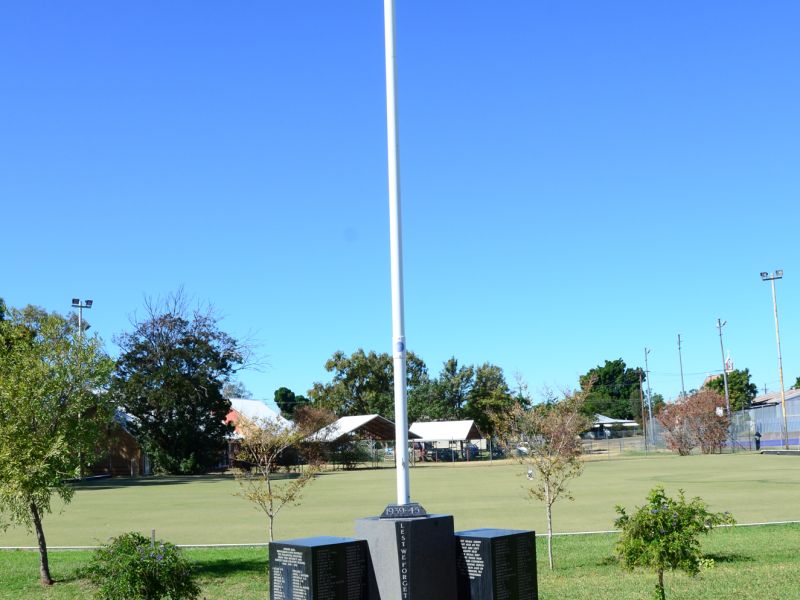Trooper Kenrick Corey Riley, 16/6th Light Horse Regiment
Kenrick Cory Riley was born at the family estate, Glenmore, at Mulgoa on 2 April 1892, to Alick and Louisa Riley. Riley’s grandfather, James John Riley was Penrith’s first mayor in 1871. William went to Newington College at Stanmore. After leaving school, he worked on his family’s property as a station hand. In 1913, he was at Yambacoona station in Brewarrina.
Following the outbreak of the First World War, Riley enlisted on 27 January 1916 and was allotted to the 16th reinforcements to the 6th Light Horse Regiment. His older brother, James Cory Riley, a station overseer, also enlisted in the Light Horse a few weeks later on 8 February.
Riley embarked with other reinforcements from Sydney on 3 May aboard the transport ship Hymettus, bound for Egypt. There, he spent several months training before joining the 6th in early October.
At this time, the Australians were involved in patrol work. However, this changed in early 1917 when the allied advance into Palestine came to a halt in front of the Ottoman fortress town of Gaza.
The 6th Light Horse was involved in unsuccessful attempts to capture Gaza in March and April, and then spent the following months on operations to outflank it.
On the 21st of August, Riley transferred to the 1st Light Car Patrol, then at Marakeb, where he was reunited with his older brother. Riley was involved in reconnaissance work as his unit scouted ahead of the main advance.
After being hospitalised with malaria in late October, Riley missed the battle of Beersheba. He returned to his unit in mid-November, a week after the fall of Gaza.
When Ottoman forces began withdrawing from Palestine, the Australians were involved in the pursuit. The 1st Light Car Patrol took part in operations which saw Jerusalem fall to the allies in December.
Riley transferred back to the 6th Light Horse Regiment in early February 1918. Following a feint attack on Amman in late February, the 6th Light Horse Regiment was involved in operations nearby over the next month.
On 27 March, the 6th Light Horse Regiment was involved in an attack on the railway station at Amman. During the fighting, Riley’s troop sergeant, Lionel Loveband, was wounded in the head, falling in an exposed position.
Without thought for his own safety, Riley ran out and recovered the wounded man. He was returning to cover with the sergeant over his shoulders when he was shot and killed instantly.
He was 26 years old.
Loveband was retrieved by others but his wound was mortal and he died shortly after. Riley and Loveband were buried the following day in a nearby wadi. After the war, they were reinterred in the Damascus Commonwealth War Cemetery.
His brother James returned to Australia in 1919 and married Eileen Stanton of Ormonde in 1928.
Michael Kelly, Historian, Military History Section
- Australian War Memorial https://www.awm.gov.au/collection/AWM2017.1.143

 Australian War Memorial
Australian War Memorial